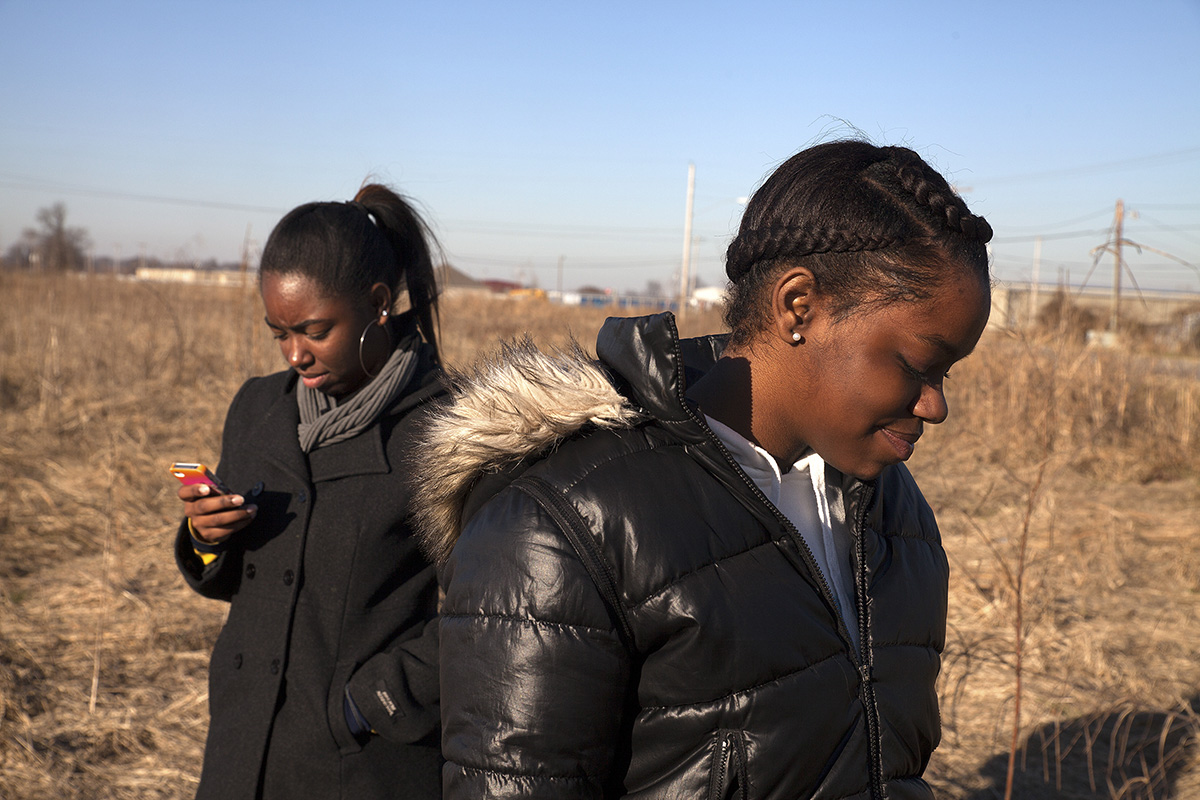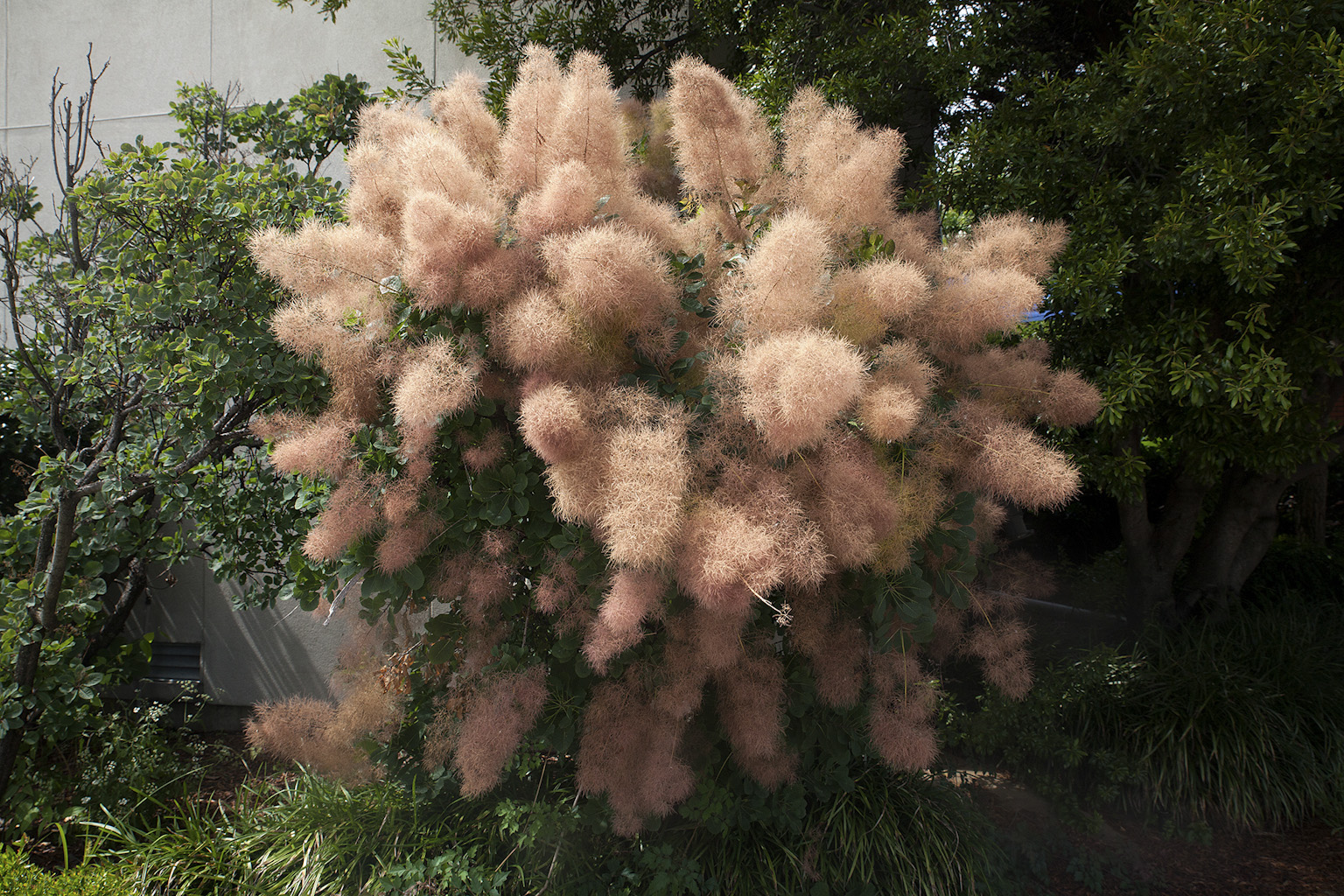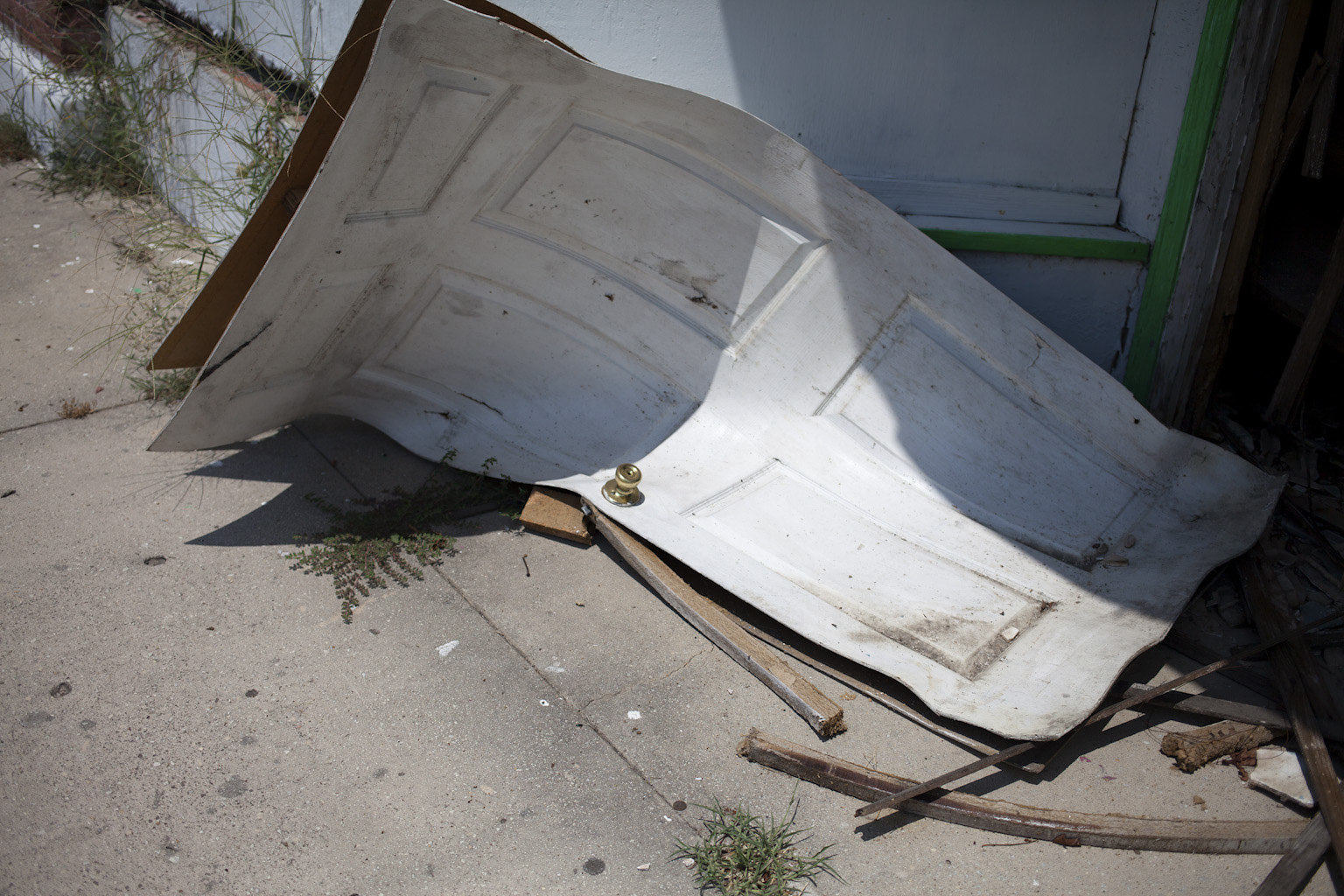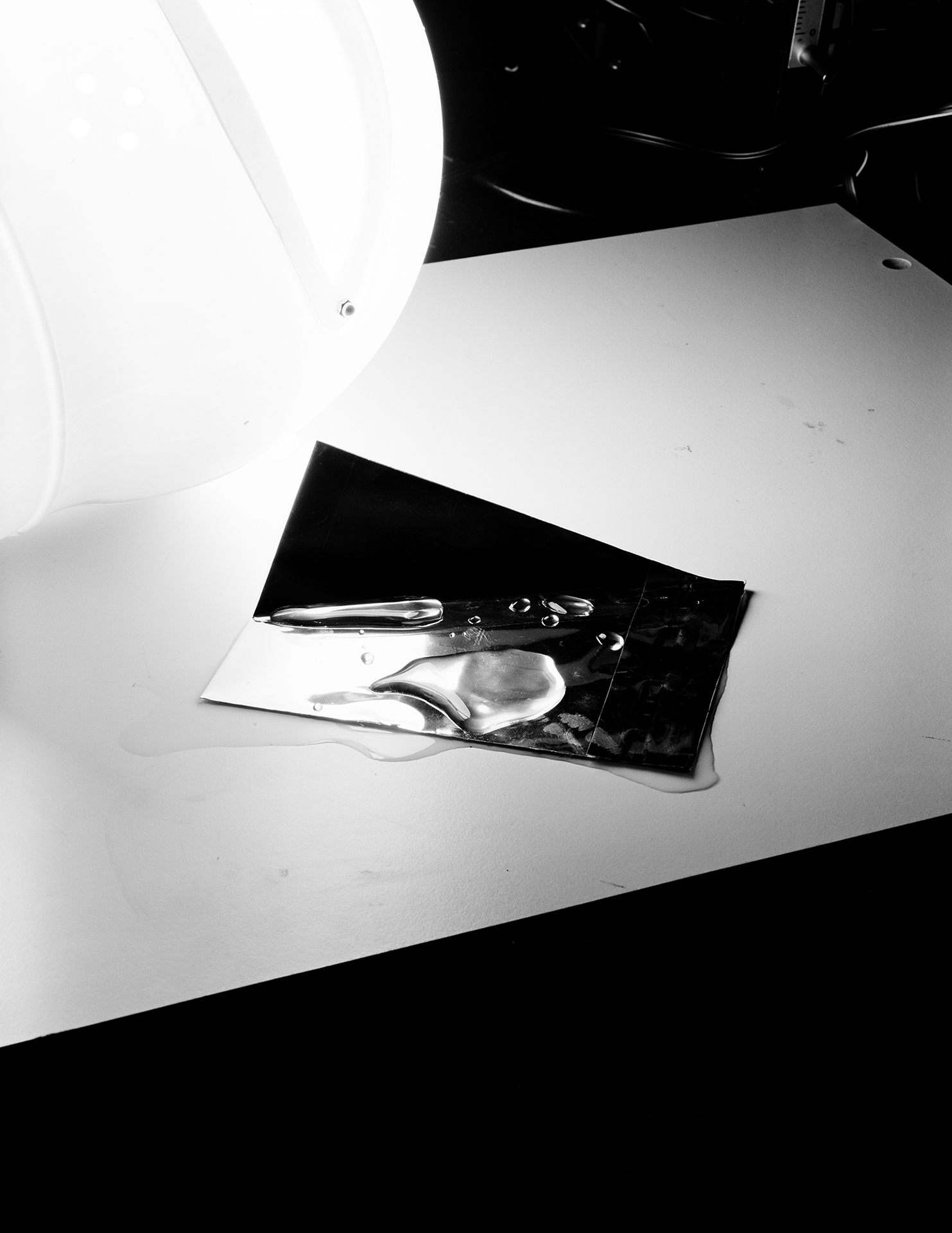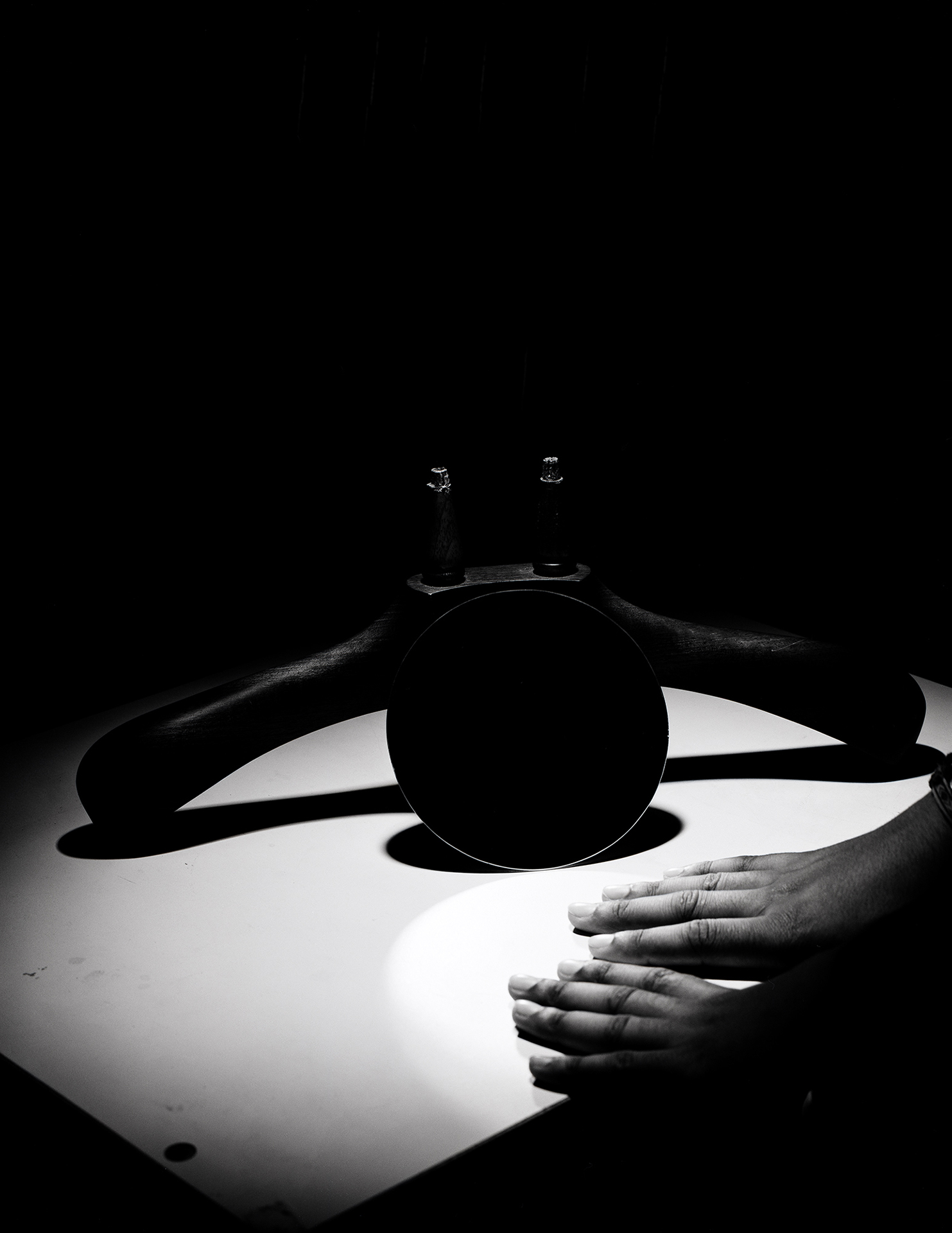Q&A: Aaron Turner
By Zora J Murff | Published on August 18th, 2017
This is an exciting week for us at Strange Fire as we are announcing one of our newest contributors to the collective, Aaron Turner!
Aaron Turner is a photographer and educator currently based in the Hudson Valley working as Technical Director in the Film and Electronic Arts Department at Bard College, also as an Adjunct Professor at Bard College at Simon's Rock. He uses photography to pursue personal stories of people of color, in two main areas of the U.S., the Arkansas and Mississippi Deltas. Aaron has a strong interest in the role that documentary photography plays in both the art and journalism worlds, and the crossover this creates in contemporary photography.
Aaron contributed an essay In These Times last September for our Photographers of Color Group Feature. Aaron and I recently sat down to catch up about his work as a photographer and curator.
Zora J Murff: Hi Aaron, we’re so excited to welcome you as a contributor to Strange Fire Collective! Why don’t we start by getting to know you a little better.
Aaron Turner: Yes I am excited as well, I've been following the Strange Fire Collective for the last year or so. Looking forward to contributing.
A little bit of background about me, I grew up in West Memphis, Arkansas until 8th grade then my family moved to Memphis, where I finished High School and college at The University of Memphis. Which is where I first got into photography. My first photo teacher was Michael Darough, while he was a graduate student at the time. He showed Robert Capa's war images in class, and I have been hooked on photography ever since. I was already majoring in Journalism and minoring in photo, so I decided photojournalism was the route for me. I kept trying to find mentors, and avenues to the next stage of becoming a photojournalist, but it was hard at first, lots of people were losing or had lost there jobs at papers, this was right in the middle of the financial crisis, that combined with a lot of other factors. Then I found out about Master's programs in Photojournalism. I applied to Syracuse and Ohio University, got into both and ended up choosing Ohio.
My time there was great, it really helped me retune my technical skills and strengthen my visual literacy. I struggled a bit my first year, but my second year is when I felt more comfortable and came into my own understanding after photographing where I grew up in the Arkansas Delta after seeing photos from Eugene Richards. I really go into portrature during my time their from taking classes with Commercial Photography professor Gary Kirksey. Then I started to become aware of photogrphers of color like Gordon Parks, Hank Willis Thomas, Latoya Ruby Frazier, and Debora Willis. Parks showed me you don't have to stick to one thing, and all the rest opened my eyes to documenting one's self and identity, and conceptual photography. I knew there had to be more than making a photo using rule of thirds layering, and the ethics of photojournalism and how one should and shouldn't tell a story.
Long story short I applied to MFA programs and ended up choosing Rutgers ( Mason Gross School of the Arts), it didn't hurt that they offered a lot of additional support that allowed me to attend. I really enjoyed my time here and working with all of the different faculty from each discipline. It's truly an interdisciplinary program, none like it in the country. A good place to learn and grow for any level of artist looking to pursue a graduate degree. During my time here I continued to shoot documentary work but mainly focused on painting and studio work with a 4x5 view camera.
ZJM: I met you through your curatorial project, Photographers of Color. How long have you been doing this endeavor, and why did you decide to take it on?
AT: I've been doing Photographers of Color for about 3 going on 4 years now, it stated a little before I began my time at Rutgers. I decided to take this on because I became aware about the lack of diversity in photojournalism during my time at Ohio University, and then also during my first time at the New York Times Portfolio Review I heard Ruddy Roye talking about a class he taught and students not being able to name one black photographer. This was a shock to me because at the time I didn't know many myself. So, I decided to start photographers color to make others aware that we exist but to also mainly make each other aware of one another. Many photographers of Color don't know about each other or one another's work. That's my main goal, to foster collaboration and community. To do that, we first have to know each other.
I noticed this as well when I moved into Art School at the graduate level, there where very few people who looked like me but also those who had achieved success in the art work beyond the nominal , were never mentioned. No one brought up Gordon Parks, Louis Draper, Roy Decarava, Carrie Mae Weems, Kerry James Marshall, Stanley Whitney, Melvin Edwards, David Hammonds. It was always DuChamp, Caravaggio, Robert Adams, Steiglitz, Dorthea Lange, Eugene Smith, etc... I still question to this day, why don't the names of photographers of color or artist of color come to mind in the in the main conversation? Is it because people don't know about them, the names have been excluded long before by folks like the October Gang? Why don't names of artist of color get included in that main stream narrative? The best possible thinker on this topic is Kerry James Marshall, I'd say.
ZJM: You contributed to the collective last year for our Photographers of Color feature. Your essay In These Times, addresses visibility of Black photographers in the industry. How do you feel that your own work is shaping/contributing this conversation?
AT: I feel that my own work is contributing in that way of telling one's own story from one's own perspective by documenting my family in the Arkansas Delta. I'm not an outsider like Eugene Richards. I'm from this place and I've been through similar situations of the people I'm photographing. I tend to stay away from poverty even though it exits, I never want to make an image that tends to fall in the category of poverty porn. During my time at Ohio University and trying to pursue this photojournalism career, that seemed to be the number one way to get noticed. Those are the projects that got all the awards, grants, internships, College Photographer of the Year awards, that's what the photo editors responded to. I never fit that mold and I always struggled with why am I here, should I find some poverty to photograph? But once I started photographing at home, with a place and people I genuinely cared about, I felt free to just make images for just the pure feeling of doing it and sharing those images with others, and stopped thinking about a career and making a living or recognition.
When it comes to the work I did at Rutgers, Black Alchemy, it's an internal conversation that still needs to continue. I am literally dealing with race and the subject of what black art is and what is a black artist, and how one can disguise their work to avoid either label. It also has to deal with my own family history and the research my father and grandfather did to determine where the slavery descendants derived from in Mississippi and who owned them. When you know exactly where and who you come from it changes the view about one's self.
I am still very young and trying to make empathetic work that matters, but as far as how my work is shaping/contributing to the conversation I'll leave that up to people down the line, but I can only say why I am making work and I am a photographer and artist who happens to be black and makes work with that in mind.
ZJM: As you move forward as a photographer and educator, what do you see for yourself in the future?
AT: As I move forward I could only hope to work as hard as possible to one day earn a position as a full time faculty member in an art or photo department, teaching either photo or in broad terms art to the next generation. There are a lot of teachers in my family my brother and my dad are both professors in relation to architecture, several of my aunts and uncles are teachers, so it runs the family to say the least. Wanting to teach also goes back to why I started Photogs of Color, I love looking at other peoples images and finding similarities to others' work. I also used to want to be a photo editor because I enjoy finding talented photographers. As an educated part timer now, I really enjoy the interaction I have between students in the academic atmosphere, I try to break the mold and get them to worry more about the ideas they have and mastering techniques instead of the gear or photo trends. I also think students think differently on a topic when they see someone who looks like them doing what it is they are studying to be, this also goes back to only mentioning the Duchamps and Picassos of the world, they are some of the greats but you also have to throw some balance in there where others making work at the same time they where who never get mentioned. Would cubism exists without Picasso being introduced to the form in African Art?
I like to learn and absorb everything as much as possible, wether it is photo, virtual reality, painting, film & video, performance art, at some point I can find a use for it all in my practice. I believe the more well rounded you are, the better.
In addition, If you look at the music industry now you see a lot of people remaining independent from record deals. Now keep in mind there are very extreme differences in the music industry and the art world, but there are similarities too. If artist/photographers can get to a certain place independently of the system, they can begin to form their own galleries, book publishing or press companies, etc.. This has/still is happening now but they don't often last that long. Some people may think why would you want to do that and why does it matter, well economic independence is still important no matter the career field, we all want to be able to make a living dong what we love, (i.e. the secure tenure position or being able to sell work consistantly). There is a lot of great art being made now but I'm not necessarily sure that the artist has total/equal power yet.
ZJM: Thanks for taking the time to speak with me, and welcome to Strange Fire.
AT: Thank you, it's always great to interact with you Zora, I'm a great admirer of your work and thinking behind your work as an artist!
All images © Aaron Turner
